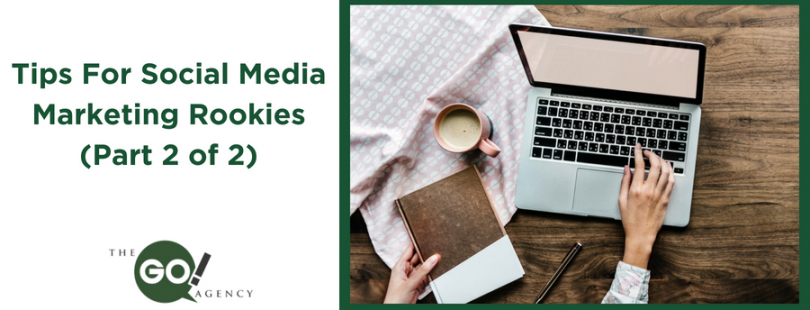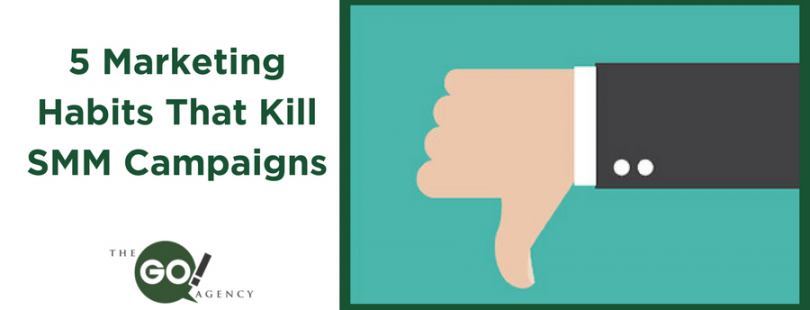It should come as no surprise that client reviews are crucial to building your credibility with prospective clients and consumers. Let’s not forget that they also are a major help in converting those prospects into paying customers. These first-person accounts speak volumes as to the quality and value of your products and/or services.
For over 10 years, clients have been asking me about what the best ways are to maximize the exposure of their reviews and how to apply them in their marketing campaigns – both offline and online. During this time we have helped our clients feature these in television advertisements, radio advertisements, billboards, vehicle wraps, signs, printed materials (brochures, flyers, booklets, folders, business cards), online advertisements, email marketing, social media marketing, press releases, and blogs.
But one thing many of these clients were not focused on was something that could take their entire online marketing campaign to the next level: online reviews!
Online reviews, that have been earned and posted on Google, Facebook, Yelp and countless other review sites, have secret search engine optimization (SEO) power that many companies overlook.
Whether you are a local roofing business or an international financial conglomerate – SEO is something that is crucial to your success in this search-driven world. Coming up on the first page of Google is something nearly all marketers are striving for (or should be striving for) on an ongoing basis.
What many marketers have to do to gain that top spot on Google is to pay for a sponsored listing via Google Ads (previously Google AdWords). While it may seem like an easy option, it can prove to be costly. We have worked with clients before that were spending in excess of $10K to $45K+ per month to land that top spot. If you have the right budget, this is a definite win, but if not, enhanced SEO through online reviews is a route that you should be exploring.
Proper SEO campaign implementation focuses on organic SEO – which are the results that turn up that are NOT clickable ads when you search on Google. There are many ways to build your organic search engine ranking (link building, on-website optimization, keyword embedding). One of the forgotten pieces is an online review campaign built on requesting and earning positive online third-party reviews.
Why? The short answer is that there are many reasons why online reviews are good for your Google search engine ranking. Google is the largest and most-used search engine out there, so having your listing be result number 1 will increase your website traffic drastically, thus increasing conversions.
Think about a typical search that you would perform on Google for a business. Depending on the category of the business, you may notice that the top Google search results would be from Facebook reviews, Google reviews, TripAdvisor reviews, Yelp reviews, and more. The more sites you cover and the more quality reviews that you get – you could cover that first full page of Google with just glowing customer or client reviews. This would result in not only SEO success, but also increases in onsite conversions.
Now let’s go into some more specific benefits of executing an Online Review campaign:
1. Proves Your Worth
Having online reviews for your business tells Google that they can trust you. Meaning these positive reviews will contribute to your domain authority. Third-party endorsements help Google realize that your website claims are valuable, real, credible and, as a result, your content deserves higher rankings within the Google search algorithm.
2. Enhances Google My Business Listing Conversions
If you have four- or five-star reviews on your Google My Business account, studies prove that you will get more clickthroughs from your GMB listing to your website. This will increases the opportunity for you to convert that website traffic into sales.
3. Hack Search Engine Results Page (SERP) Ranking Listing:
If you are able to consistently gain quality online reviews (more than four stars and above with comments) Google will use this to determine where your business shows up on SERP. Lots of positive reviews could lead to higher ranking above and beyond your direct competitors, who may be missing this approach altogether.
4. Want More Conversions? You Need More Traffic!
By showing up higher in the organic results, you will gain more clicks to your website. This additional traffic will enable you to increase the amount of opportunities you have to convert this traffic to sales. Also, this traffic can easily be tied to your top or mid-funnel activities (email drips, IP retargeting, online advertising).
5. Consistent Quality Reviews = More Website Updates = More Trust From Google
Having your reviews posted to your website (either automatically or manually) will place new content on your website. The more you add new content, the more that Google will come back to check on your content. It will also let Google know they need to come back often to reindex your page. This will help Google better understand your credibility and award you with higher search engine rankings.
6. Respond and Reap SEO Rewards
Receiving online reviews is definitely a positive result (as you can see from above), but if you want to build even more SEO power simply respond to them! Whether they are good or bad, every review (no matter if it has a comment or not) should get a thoughtful response from your organization or company. You have the ability to amp up your SEO rankings by keeping the communication stream going as it builds trust with not only your customers, but also trust with Google itself.
7. The Long-Tail Effect
Imagine that you begin to have multiple clients writing reviews about your amazing “social media marketing services.” By a few clients writing “social media marketing services” in their review, it draws the attention of Google. Google sees this as an important and weighted long-tail keyword. So when a new prospect searches for the phrase “social media marketing services” on Google, your listing is more likely to be be shown towards the top of the organic search results.
These types of results are ones that those companies pay a lot of money for. Remember that $45K per month budget to be number 1 in the Google search results that I mentioned before?
8. Local Business? Can’t Miss Opportunity
According to research, review ratings are the biggest driver of clicks in local Google search engine ranking pages. This means that those professionals with local brick and mortar locations, by gaining reviews online you can expect higher rankings and more clicks through to your website.
9. Grab Over 91% of Online Traffic
Having a higher organic listing based on the boost from online reviews will increase the odds that your website will be on the first page of the Google search results. Anyone that lives on that first page of Google search results will be gaining over 91% of the web traffic for the search query that generated the page.
10. Genuine Reviews Reduce Website Bounce Rate
One thing not favored by Google: a website that has a high bounce rate. A bounce rate is calculated as the time when someone goes to visit your website and “bounces” away from it after a mere few seconds. Google understands this “bounce” as the user indicating that where they originally clicked through from may have had a message that was not continued when they visited your site.
This is akin to “bait and switch” techniques that have been around for many years.
By having online reviews that are prominently featured online in Google searches you will benefit from the potential customer or client reviewing these before visiting your site. This will lead to the user gaining a better understanding of your company and services/products. So if they choose to click through to your website – they know what to expect and will not immediately “bounce” off your site. This will help you keep and enhance your search engine rankings on a regular basis.
Still on the fence about the power of online reviews to enhance SEO? There are hundreds of articles out there with more information that you can peruse that not only mirror my story, but shout the benefits even more aggressively.
From my perspective, this tends to be the one secret SEO trick that many people overlook. Because of this, it can provide lots of competitive advantage to your company. Online reviews are a crucial piece of your overall online marketing campaign that could be the tipping point of your appearing on page 1 of Google searches or page 10.
Want to get started without having to do any of the setup, execution, and management? We have developed a Reputation Management and Online Review Service that will have you harnessing the SEO power of everything listed above without you having to do any of the setup, execution, or management. Our service starts from as low as $199 per month (not including setup). If you would like to get started today or see a demo of our service, please call or email our team.
Read More









